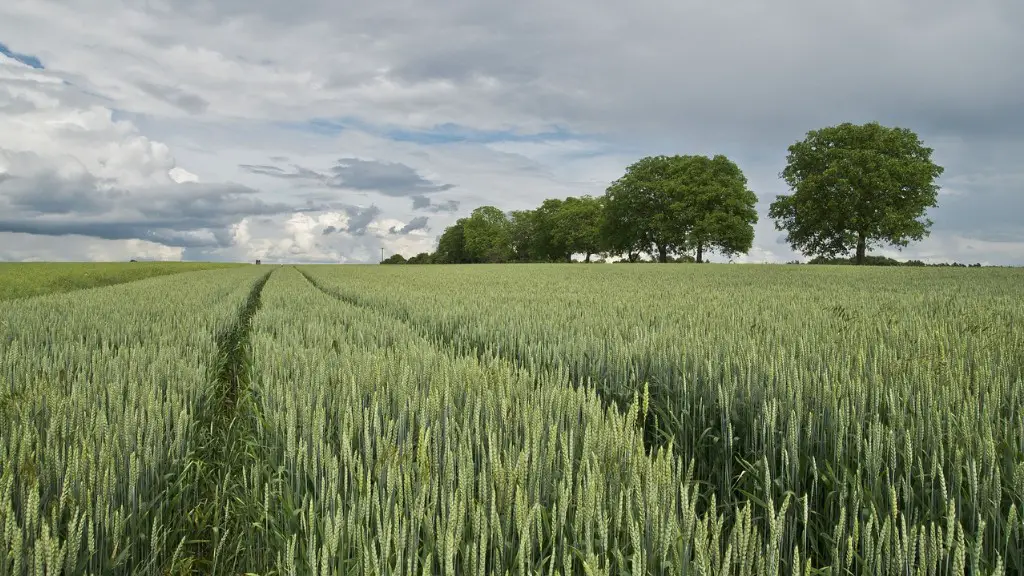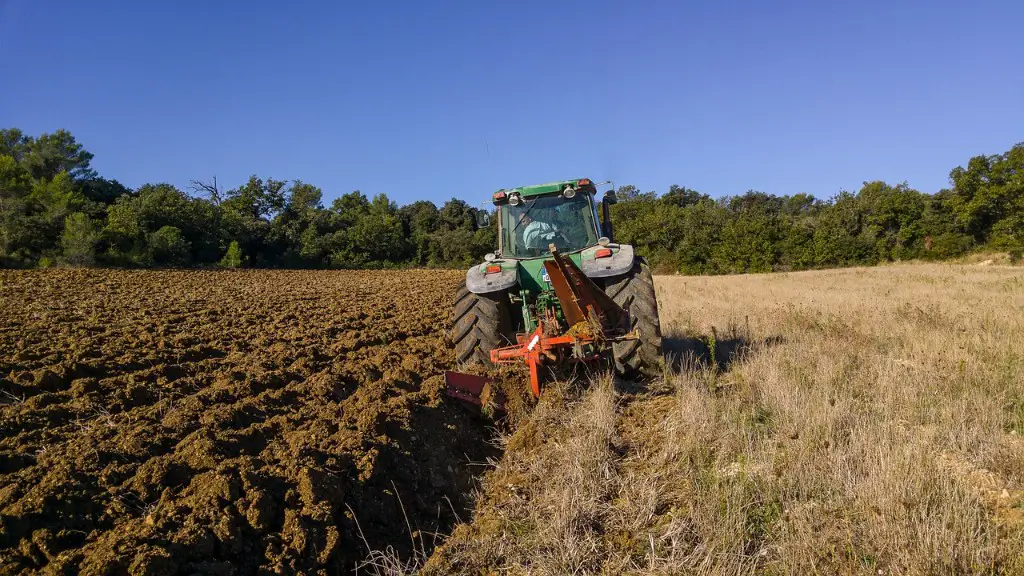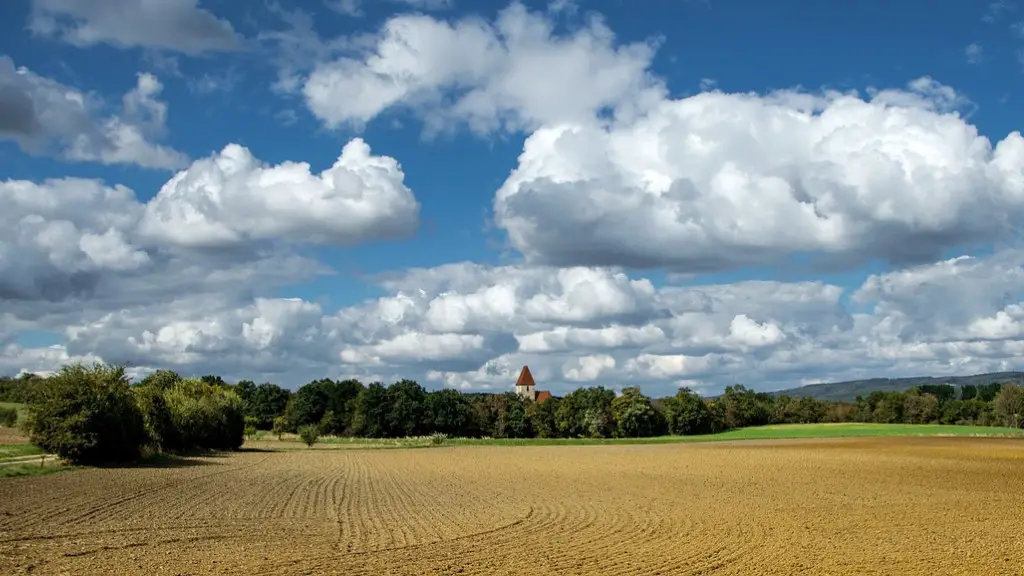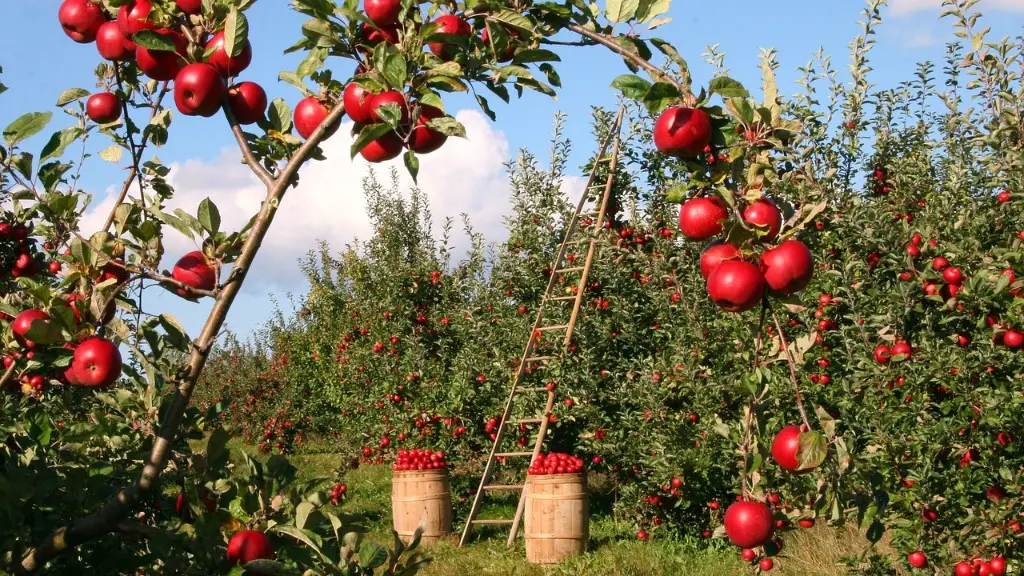Agriculture is one of the oldest and most important occupation of humankind. It is the main source of food, clothing and shelter. It is also the source of many other materials that we use in our daily lives. Agriculture helps people by providing them with the things they need to live.
Agriculture provides food for people to eat. It also provides employment for people who work in the agricultural industry. Agriculture also helps to provide raw materials for products that we use in our everyday lives.
How did agriculture help people?
Agriculture is an important sector of the economy, providing food, clothing, and shelter for people. It helps people to enjoy a higher quality of life by providing them with essential goods and services. Agriculture also provides employment opportunities for people, which can help to reduce poverty and improve economic development.
When early humans began farming, they were able to produce enough food that they no longer had to migrate to their food source. This meant they could build permanent structures, and develop villages, towns, and eventually even cities. Closely connected to the rise of settled societies was an increase in population.
What are 3 benefits of agriculture
1. Agriculture is the main source of raw materials for industries.
2. Agriculture is important to international trade.
3. Agriculture plays a big role in a nation’s revenue.
4. Agriculture provides employment.
5. Agriculture is crucial to a country’s development.
6. Agriculture can help heal the environment.
7. Agriculture goes hand-in-hand with war.
8. Agriculture is a big part of the economy.
9. Agriculture is a way of life for many people.
10. Agriculture is important to the world.
Agriculture creates the enabling environment by the increase in biodiversity. This will lead to healthier soil, less erosion, better water conservation, and healthier pollinators. By creating a more diverse environment, agriculture can help create a healthier ecosystem that benefits everyone.
What is a positive thing about agriculture?
Agriculture is the backbone of many societies and continues to play a vital role in social and economic development. Agricultural products provide food, shelter, and clothing for people around the world, and support livelihoods through employment and trade. The sector also provides raw materials for a range of industries, from food processing to textiles. Agriculture contributes to strong economies by generating income and stimulating growth, and can help reduce poverty and improve food security.
Agriculture is the backbone of the Nigerian economy, accounting for about 60% of the country’s GDP and employing about 70% of the workforce. The sector is also a major source of export earnings, with agricultural products accounting for about 30% of Nigeria’s export earnings.
The main benefits of agriculture in Nigeria are:
1. Production of export crops: Agriculture is a major source of export earnings for Nigeria, with agricultural products accounting for about 30% of the country’s export earnings.
2. Agro tourism: Agriculture is a major source of tourist attraction in Nigeria, with the country’s tourist attractions including a number of agro-tourism sites.
3. Job creation: Agriculture is a major source of employment in Nigeria, with about 70% of the country’s workforce employed in the sector.
4. Source of raw material for other industries: Agriculture is a major source of raw materials for a number of industries in Nigeria, including the food processing, textile and leather industries.
5. Entrepreneurial and investment opportunities: Agriculture provides a number of opportunities for entrepreneurship and investment in Nigeria.
6. Economic diversification: Agriculture is a key sector in Nigeria’s economy, accounting for about 60%
How does agriculture reduce poverty?
The poorest people in society often benefit the most from agricultural growth. This is because agricultural growth increases the demand for labor, which in turn increases the likelihood of people being able to find employment. Additionally, agricultural growth may also lead to increased salaries, which further increase the income that can be generated from selling labor. Ultimately, agricultural growth benefits the poorest people in society by providing them with greater opportunities to earn an income.
The use of modern machinery in agricultural lands causes more and high-quality production of crops So, the provision of raw material to the industries increases. This in turn results in increased employment opportunities and overall economic development of the country.
What is the importance of agriculture to the community
The importance of agriculture to the community cannot be overstated. For one, it creates jobs for members of the community, boosts the community’s economic growth, sustains the community by the food source, and other raw materials. Agriculture is essential to the community in many ways and should be supported.
Agriculture is the mainstay of the Indian economy. About 60% of the population is dependent on agriculture for its livelihood. Agriculture also contributes a significant share to the country’s GDP.
Despite this, agriculture in India has been lagging behind other sectors. The sector has been facing various challenges, such as low productivity, lack of technological advancement, and dependency on weather conditions.
However, there is potential for the agricultural sector to grow and contribute even more to the economy. For instance, the government has launched initiatives like the Pradhan Mantri Fasal Bima Yojana and Pradhan Mantri Krishi Sinchai Yojana to boost the sector. In addition, the government is also encouraging the private sector to invest in agriculture.
If the agricultural sector can be made more productive and efficient, it can play a major role in boosting the rate of capital formation in the country. This, in turn, will lead to economic development and help alleviate poverty.
How does agriculture improve the economy?
It is interesting to note that agriculture’s share of the overall US economy has been relatively stable over the past few years. In 2021, agriculture, food, and related industries contributed roughly $1264 trillion to US gross domestic product (GDP), a 54-percent share. The output of America’s farms contributed $1647 billion of this sum—about 07 percent of US GDP.
While agriculture can have negative impacts on the environment, it can also have positive impacts. Agriculture can trap greenhouse gases within crops and soils, or mitigate flood risks through the adoption of certain farming practices. These positive impacts can help offset the negative impacts of agriculture, and make it a more sustainable activity.
Why is it important to save in agriculture
Agricultural land is a vital natural resource that supports the production of food and other crops. Protecting agricultural land from development and other uses helps to ensure long-term food security and maintain the essential environmental benefits that these lands provide. Agricultural lands provide important habitat for wildlife, help to recharge groundwater supplies, and improve air and water quality. They also help to mitigate the effects of climate change by sequestering carbon in the soil. In addition, agricultural lands are a major source of recreation and tourism. Therefore, their protection is essential to the economic well-being of many communities.
The pros of agriculture outweigh the cons because it has allowed humans to become experts in their field and has lead to the domestication of important crops. Agriculture has also lead to the development of civilization which has brought many benefits to humanity.
How does agriculture gain importance in society?
Agriculture is a vital source of livelihood for many people across the globe. It is the world’s leading source of food items, producing vegetables, proteins, and oils. The rising agricultural surplus caused by increasing agricultural production and productivity tends to improve social welfare, particularly in rural areas. This makes agriculture an important sector to focus on in terms of development and poverty reduction.
Farmers play an important role in the economy and provide essential employment for people in rural communities. Farming and the agricultural industry as a whole is a major source of employment in many places. Farmers produce food and other products that are essential to our way of life. They also provide jobs for people who live in rural areas.
What are the impacts of agriculture to the society
The impact of agriculture on the environment is complex. It can be both positive and negative, depending on the type of agriculture being practiced and the specific environment in which it is being practiced. In general, though, the impact of agriculture on the environment is becoming increasingly negative as the world’s population continues to grow and the demand for food increases. This is due to the fact that agriculture globally is exerting increasing pressure on the land and water resources of the earth, which often results in land degradation (such as soil erosion and salinization), and eutrophication. Agriculture is also associated with greenhouse gas emissions, which contribute to climate change. As the impact of agriculture on the environment continues to be negative, it is important to find ways to make agriculture more sustainable.
Sustainable agriculture is vital to feeding the growing worldwide population and reducing the impact of climate change. Today, agriculture accounts for up to 30% of the world’s greenhouse gas emissions, according to the World Bank. Sustainable agriculture practices can help reduce these emissions, while also increasing yields and supporting small-scale farmers. As the world population continues to grow, it is essential that we adopt more sustainable practices to ensure that everyone has access to nutritious food.
Conclusion
Agriculture provides people with food, the mainstay of human survival. Agriculture also provides people with employment opportunities, as well as raw materials for industry. Agriculture is thus a vital part of the human experience, and one that touches the lives of people around the world in a variety of ways.
Agriculture is an important sector of the economy and it plays a vital role in the livelihoods of people across the globe. It provides employment opportunities and contributes to food security and nutrition. Agriculture also helps to preserve the environment and to sustain rural communities.





